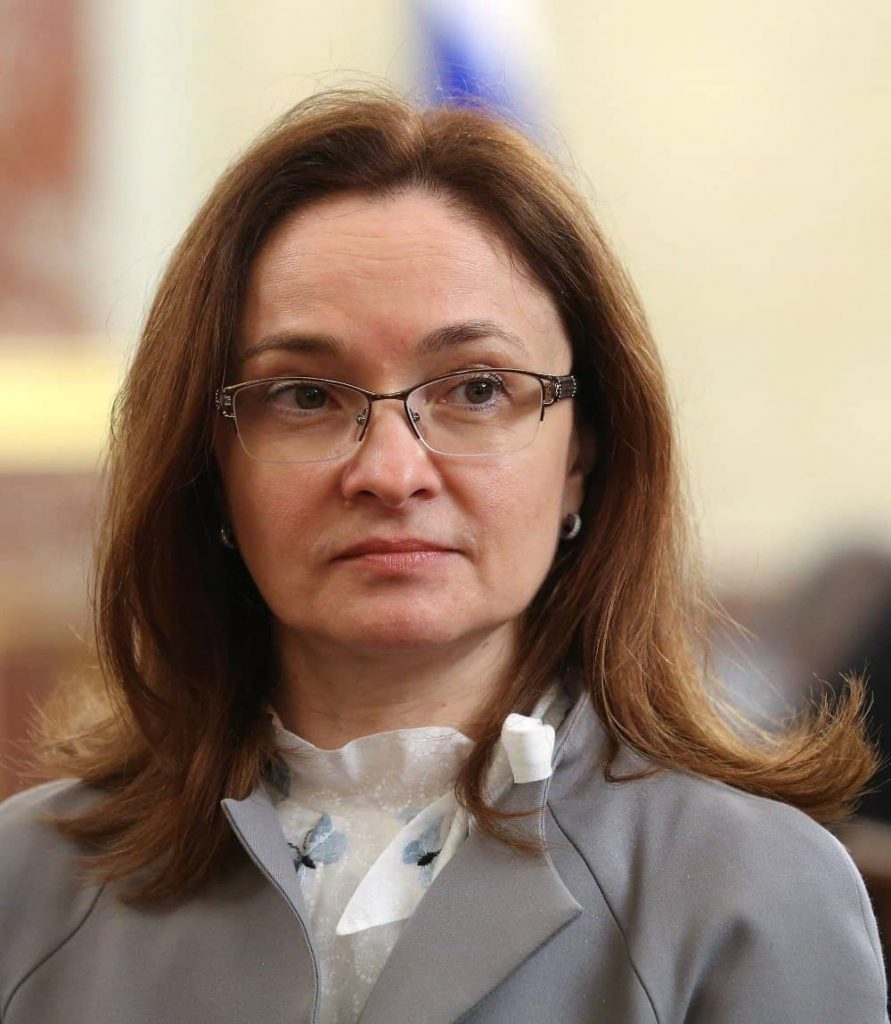Russian central bank eases stance: now supports Bitcoin regulation. Central Bank’s head agrees to use crypto assets to pay international transactions.
- Russia’s Central Bank agrees to bitcoin regulation as long as it does affect the financial system.
- Despite the central bank’s rejection of Bitcoin, it seems to give in to the current blockade.
- Oil producers will lend their energy capacity to mine Bitcoin.
The Russian Central Bank’s stance on bitcoin (BTC) and cryptocurrencies appears to be softening. The head of the financial institution, Elvira Nabiullina, indicated these days to agree to use crypto assets to pay international commitments. Nabiullina spoke at the St. Petersburg economic forum this June 16, explaining that they still maintain their stance of not allowing the use of Bitcoin and cryptocurrencies as a means of payment within the country.
“As for the use in international agreements, if it does not penetrate the Russian financial system, then yes, it is possible,” Elvira Nabiullina.
Nabiullina’s words were ratified by Ksenia Yudaeva, first deputy chairman of the Russian Central Bank, assuring they are not opposed to its use for “international transactions.”
The Russian official’s statement aligns with what the Russian Ministry of Finance reported last May. Back then, they indicated that they were discussing the possibility of using digital assets to make international payments due to the “limitations” of liquidity faced by their traditional payment system.


Something similar was also suggested by Pavel Zavalny, head of the Energy Committee, to accept cryptocurrency for the sale of energy resources, such as gas and oil. In that sense, Russian officials seem to have a tacit agreement regarding using pioneering cryptocurrencies to evade international sanctions. Nabiullina aspires to some consensus between the parties.
Change of stance, to some extent
These movements show a change in the Russian regulator’s position compared to what it was saying earlier this year. The bank believed crypto was a “significant threat to Russian citizens’ well-being and the financial system’s stability.“
Among other aspects, they saw as negative aspects of crypto assets were that, according to them, they had the characteristics of a financial ponzi scheme and that they limited Russia’s monetary policy sovereignty.
The issuer’s statements led to a controversy with the Ministry of Finance and even with members of the State Duma (lawmakers), who supported the bill drafted by the Ministry of Finance. The central bank has maintained a more radical stance against this project.
Bitcoin to Evade Western Sanctions
It is crucial to consider that they made the Bitcoin proposal before Russia invaded Ukraine, and since then, many things have happened. The Russian war brought a series of economic sanctions from the United States and Europe to stop the Eurasian giant from using Bitcoin.
There was even a debate about what role Bitcoin could play in circumventing economic measures. The central bank still views something with suspicion despite Nabiullina’s recent statements, as this media outlet has reviewed on several occasions.
Matthew Sigel, head of digital asset research at VanEck, suggested that Russian millionaires could circumvent financial blockades by using decentralized cryptocurrency exchanges to mobilize their fortunes outside Russia through investments in assets or purchasing goods and services. Most blockchain analytics firms have indicated something that has not happened so far.
Financial expert Mati Greenspan, CEO of Quantum Economics, stated that sanctions could not prevent negotiations between parties using Bitcoin. Moreover, he believes that prominent capitalists can protect themselves from sanctions by keeping their wealth in Bitcoin.
While everything indicates that measures for bitcoin use in the country are becoming more flexible, the discussion on regulating the cryptocurrency market and bitcoin mining by order of Russian President Vladimir Putin is still underway. Putin, who sees certain positive aspects in Bitcoin, asked his ministers to continue discussing the issue and make a unanimous decision among all parties involved.
Russia’s third-largest oil-producing company to mine Bitcoin
According to reports, a prominent Russian state-owned oil company will be dabbling in Bitcoin mining through another company specializing in cryptocurrencies. According to studies, Gazpromneft is a subsidiary of Gazprom, a Russian state-owned company that is the seventh-largest oil-producing company in the world.
This morning it became known that Gazpromneft would be allying with Swiss firm BitRiver, which specialized in bringing Bitcoin mining to oil facilities. The information comes from the St. Petersburg International Economic Forum. According to this information, BitRiver and Gazpomneft signed a collaboration agreement for the next two years. According to information shared with specialized media, the contract consists of constructing mining centers of up to 2 gigawatts of power, the energy generated with gas.
Representatives of Russian cryptocurrency industry associations, Russian state technology corporations, members of Congress and deputies, and BitRiver executives attended the Forum.
BitRiver is also a company sanctioned by the United States through the Treasury Office of Assets Control (OFAC) as a company allied with Russia in the context of the war in Ukraine. In 2020, Gazprom, Gazpromneft’s parent company, agreed to provide energy to Bitcoin miners in Siberia.
